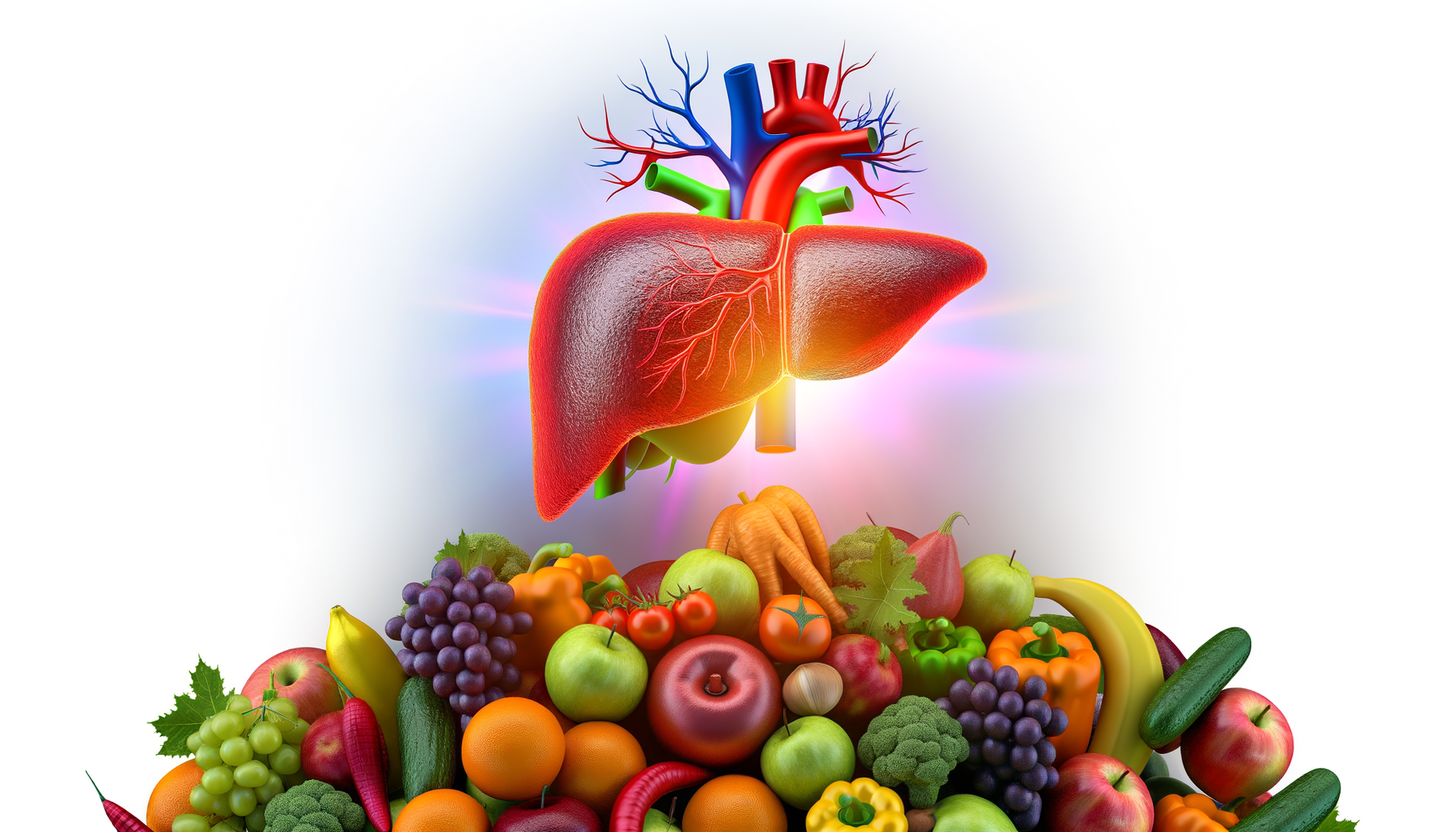Understanding the Crucial Role of Nutrition in Liver Health
The liver is a vital organ that plays a central role in metabolism, detoxification, and the overall health of the body. Its function is intricately linked to the nutrients we consume, making diet a critical factor in maintaining liver health. In this article, we will delve into the impact of calorie sources on liver health and detoxification, providing actionable insights and real-world examples.
The Liver’s Role in Metabolism and Detoxification
The liver is responsible for metabolizing proteins, fats, and carbohydrates, as well as absorbing and storing micronutrients. It also breaks down toxins such as alcohol, medications, and natural byproducts of metabolism.
Beneficial Foods for Liver Health
Certain foods are particularly beneficial for liver health due to their antioxidant, anti-inflammatory, and detoxifying properties.
Coffee and Tea
Consuming coffee and tea has been shown to have positive effects on liver health. Coffee, for instance, has been linked to improved liver enzyme levels and a reduced risk of liver disease. Similarly, green tea contains antioxidants that may help protect the liver from damage, although it is important to note that green tea extract can occasionally cause liver injury in rare cases.
Fatty Fish
Fatty fish, rich in omega-3 fatty acids, help reduce inflammation and prevent the buildup of excess fats in the liver. These healthy fats are essential for maintaining liver function and overall metabolic wellness.
Whole Grains and Fiber
Whole grains like oatmeal, whole wheat bread, and brown rice are high in fiber, which is crucial for digestion and liver health. Oatmeal, in particular, contains beta-glucans that may help reduce liver fat and protect the liver.
Fruits and Vegetables
Fruits such as berries (blueberries, raspberries, cranberries), grapefruits, and grapes are rich in antioxidants like polyphenols and naringenin, which help protect the liver from damage and inflammation. Vegetables, especially cruciferous ones like broccoli and carrots, contain beneficial plant compounds that support liver detoxification.
Healthy Fats
Olive oil is a healthy fat that has positive effects on liver fat accumulation and overall health. It is recommended to consume olive oil as part of a Mediterranean diet, which emphasizes plant-based foods and healthy fats.
Foods to Avoid for Liver Health
While certain foods are beneficial, others can be detrimental to liver health.
Fatty and Fried Foods
Foods high in fats, such as fried foods, fast food, and packaged snacks, can lead to the buildup of excess fats in the liver, contributing to conditions like non-alcoholic fatty liver disease (NAFLD).
Sugary and Salty Foods
Consuming high amounts of sugar and salt can stress the liver. Sugary foods like cereals, baked goods, and candies increase the risk of metabolic disorders, while high salt intake can worsen fluid retention and swelling in the liver.
Alcohol
Alcohol consumption is particularly harmful to the liver, causing metabolic, biochemical, and molecular disorders. It is crucial to exclude alcohol from the diet to maintain liver health.
Dietary Recommendations for Liver Health
For individuals with liver disease or those looking to support their liver health, several dietary recommendations are key:
High Protein and Energy Diet
For patients with cirrhosis, a diet high in protein and energy is recommended due to the catabolic effects of the disease. This includes consuming about 1.2 to 1.5 grams of protein per kilogram of body weight, with a focus on non-meat protein sources like beans, tofu, and dairy products.
Balanced Macronutrient Intake
A balanced diet with a moderate intake of fat, high intake of carbohydrates, and adequate protein is essential. This helps prevent protein breakdown in the liver and supports overall metabolic wellness.
Mediterranean Diet
The Mediterranean diet, which emphasizes plant-based foods, healthy fats, and whole grains, is highly recommended for patients with NAFLD. This diet has been shown to reduce steatosis and improve insulin sensitivity.
Lifestyle Changes for Liver Health
In addition to dietary changes, several lifestyle modifications can support liver health.
Regular Exercise
Increasing physical activity, particularly strength training, is recommended for patients with NAFLD. This helps improve liver biochemistry and reduce liver fat content.
Quality Sleep
Getting adequate sleep is crucial for overall health, including liver health. Poor sleep can disrupt metabolic processes and exacerbate liver conditions.
Using Tools for Nutritional Planning
To ensure you are meeting your nutritional needs and supporting your liver health, using tools like the Calorie Calculator Cloud can be highly beneficial. This tool helps you plan your meals, track your calorie intake, and make informed dietary choices.
Case Studies and Real-World Examples
Several studies and real-world examples highlight the importance of diet in liver health. For instance, a study on the Mediterranean ketogenic diet showed significant reductions in liver enzymes and fatty liver in obese men with metabolic syndrome.
Another example is the recommendation by the University of Chicago Medicine’s Steatotic Liver Disease Clinic, which emphasizes a diet rich in healthy fats, plant-based foods, and up to three cups of coffee per day to help reverse fatty liver disease.
Conclusion and Next Steps
Maintaining liver health is a multifaceted approach that involves a balanced diet, regular exercise, and adequate sleep. By incorporating beneficial foods, avoiding harmful ones, and using nutritional planning tools like the Calorie Calculator Plans, you can significantly support your liver’s function and overall metabolic wellness.
If you are concerned about your liver health or have specific dietary needs, it is always best to consult with a healthcare provider or a registered dietitian to tailor a diet plan that suits your individual requirements.
By making informed dietary choices and adopting a healthy lifestyle, you can protect your liver and ensure optimal health for years to come.








